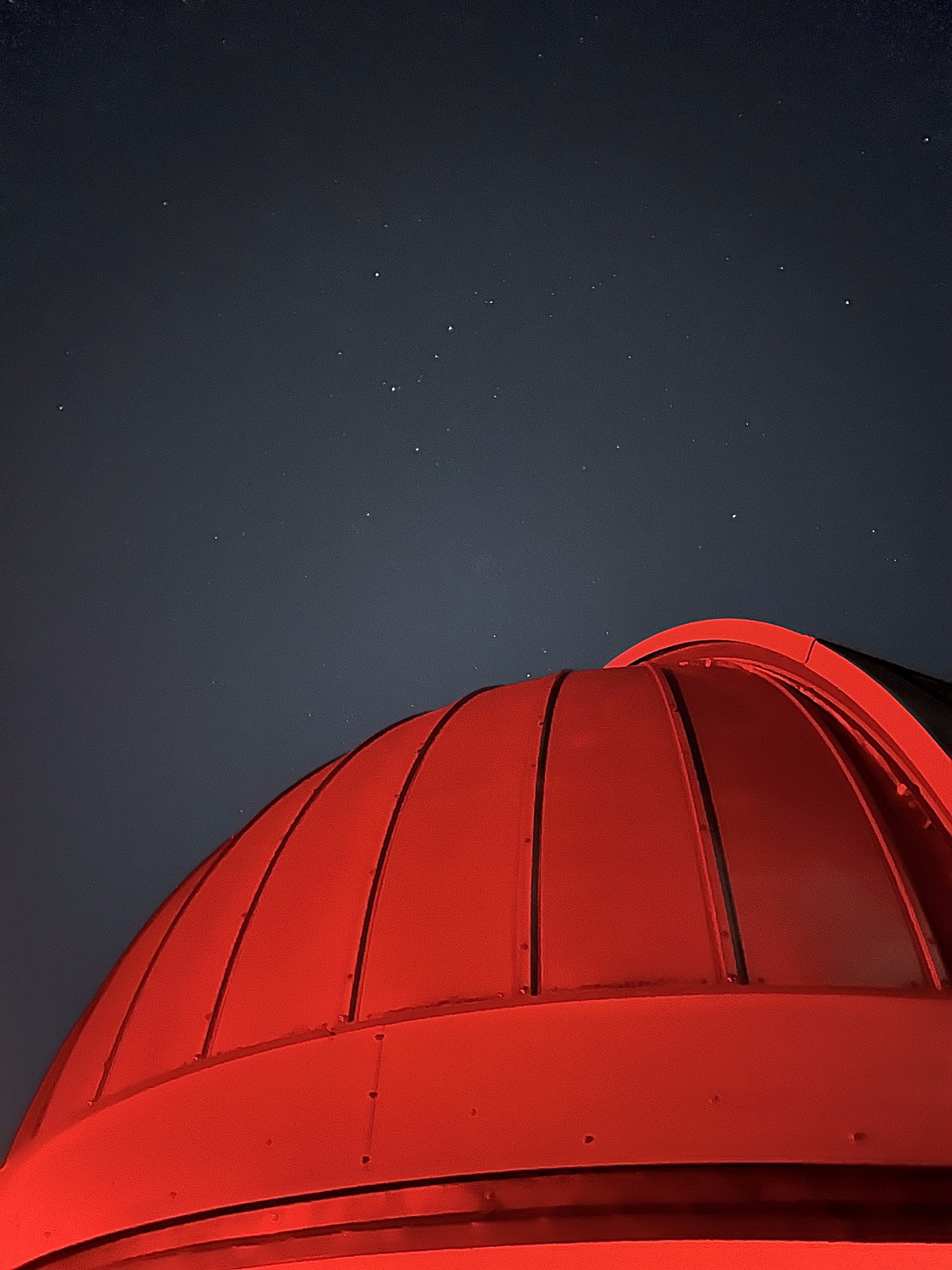Leitner Planetarium reopens for first time since COVID-19 pandemic
The Leitner Family Observatory and Planetarium to present a new planetarium show after reopening earlier this month

Emilie Ma, Contributing Photographer
On Jan. 17, after a nearly-three-year closure due to the COVID-19 pandemic, the Leitner Family Observatory and Planetarium fully reopened to the public with a planetarium show titled “Oasis in Space.” Although the Leitner observatory reopened for public viewing in 2021, the planetarium has been closed since March 2020.
Displayed every Tuesday night with two showings, one at 6 p.m. and one at 7 p.m., the exhibit illustrates the journey through the galaxy in search of liquid water, a critical aspect of the existence of life on Earth. The program displays celestial objects of interest for that night, such as nebulas and comets, followed by the 25-minute show “Oasis in Space,” which is projected onto a dome and gives the audience a tour of the galaxy’s planets, each with its own theme song.
“We are getting answers to big questions and ideas, like the origin of the universe, using astronomy,” Michael Faison, lecturer of astronomy and director of Leitner Family Observatory and Planetarium, told the News. “In some ways, it’s very democratic. Everyone sees the same stars, with the same eyes to look up and see amazing things like the rings of Saturn and star clusters. We can look up and wonder about our place in the universe.”
First created in the early 2000s, the show was recently updated by its producer Spitz Planetarium with new technologies, such as sophisticated, high-definition visuals and more scientifically accurate findings. The producers, for instance, were able to incorporate new images that the New Horizon spacecraft captured in 2015 as it flew by Pluto and its moon, Charon. This is, however, the show’s debut at the LFOP.
Led by Faison, the LFOP serves to bridge the gap between public outreach and student research.
The LFOP, furnished with a digital planetarium theater, two permanently mounted telescopes, and a lecture hall, also invites the public to observe space at night with a variety of telescopes.
Faison noted that a hands-on telescope experience is essential for every university, including Yale. He further emphasized the role that the observatory plays within the community.
“It’s important that we improve scientific literacy with our public viewing nights, whether it means meeting families, kids, retirees or students,” Faison said. “It’s quite the mix of the New Haven community.”
As a facility of Yale’s Astronomy Department, the LFOP serves as a center for astronomical research, with classes taught in the summer and fall for high school students around the world and college students to embark on research projects, ranging from tracking extragalactic supernovas to modeling comet trajectories.
Over the summer, the center is home to the Yale Summer Program in Astrophysics for high school students to visit Yale and take classes at the planetarium, perform research and ultimately write a research paper on their findings. During the fall semester of the school year, the Observatory serves as the teaching center for classes and labs for students of any major.
“I’m always striving for more undergraduates to come,” Faison remarked.
He acknowledged the distance from central campus as a possible detractor from students visiting the center, which can be an 18-minute walk from Cross Campus. However, he mentioned that its distance also helps limit light pollution.
The reopening of the observatory has also been exciting for students who are enthusiastic about space. Dalaney Westbroek ’25 expressed their interest in learning more about astronomy.
“I’ve always been interested in space,” Westbroek said. “There’s something exciting about learning the expanse of the universe beyond our world.”
Theo Schiminovich ’25, an earth and planetary sciences major, agrees. He cited the opportunity that activities like stargazing provide to connect to nature.
“I enjoy going out and looking up at a sky full of stars because it’s a connection to nature that many people have lost living in cities with light pollution,” Schiminovich said. “I’d like to get an idea of what’s out there and explore the possibilities of what space has to offer.”
Julia Levy ’25, a physics and computer science major and observatory assistant, noted her enthusiasm for the opening of the planetarium with the new show.
“It’s fascinating how these shows demonstrate how minute the planet that we know is in relation to the entire universe,” Levy said. “It enables us to speed through galaxies in seconds when all one fathomed before was a tiny speck that was our planet.”
The observatory suggests a $10 donation per adult to fund the facility’s activities and requires advanced registration with about a 40-person capacity. Reserve tickets and find details here.







